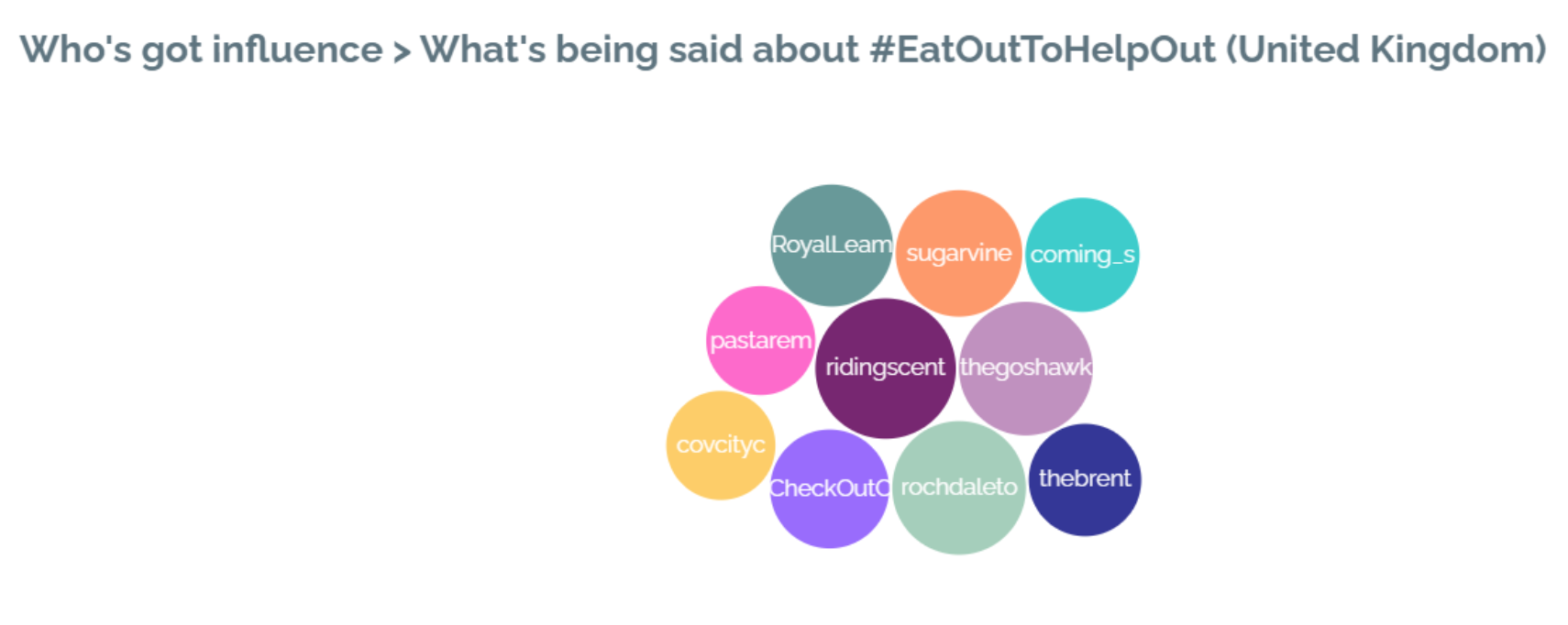August's Eat Out to Help Out campaign was a roaring success for the hospitality industry. 84,700 restaurants, cafes and venues registering for the 50% off scheme and hundreds of thousands of customers delighted to dine out for less. But less than three weeks after the end of the scheme, the UK now faces further social distancing challenges.
Who influenced the Eat Out to Help Out campaign?
Why does influence matter?
New measures including a 10pm closing time for pubs, and decreased group sizes for socialising will hit the hospitality sector hard. The restrictions are in place for at least six months, with no guarantees there won't be more stringent to come.
Identifying the most influential voices within the #Eatouttohelpout conversation or a local conversation about a place, allows businesses to follow and engage with the social media users driving the most impact with their messages. Identifying these advocates or detractors enables a business to build positive relationships with the voices that could have an impact on business and brand perception, and performance.
Christmas is but 12 weeks away and just as the success of Eat Out to Help Out relied on a collective effort from local places, BIDs, councils and shopping centres, so too will be supporting F&B through this period. With this in mind, we demonstrate how some businesses got supporting tenants and levy payers right over Eat Out to Help Out, and who had influence in the conversation.
Who influenced the conversation?
Over Eat Out to Help Out restaurants, not customers, created the majority of the content. But shopping centres such as The Ridings in Wakefield also supported the scheme so well it appeared as an influencer in the national conversation.
Leamington Spa Town Centre, Coventry City Centre, and Rochdale Town Centre supported the scheme so passionately that they also had influence at a national level.
This demonstrates the importance for BIDs and Councils to back their local businesses, and engage with them on social media, as well as the role shopping centres need to play to support their tenants.

Key takeaway
Eat Out to Help Out provided the hospitality industry a much needed boost.
The likes of The Ridings Shopping Centre, Blackpool BID, Rochdale and Leamington Spa Town Centres, demonstrate how they can influence national conversations when they throw their social media support behind their tenants and levy payers.
When BIDs, Councils, shopping centres or any place makers for that matter draw attention to one business, they in turn can drive foootfall for all. This will be of paramount importance over Christmas as many in the hospitality industry will face early closing times, reduced capacity, increased social distancing measures, and potential local lockdowns.







